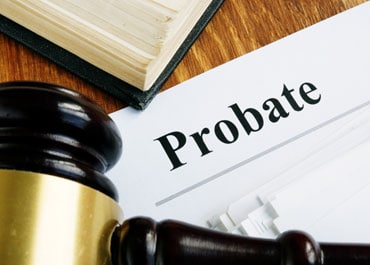
Many of the clients we serve at Legacy Law Centers use a revocable living trust instead of a will or joint ownership to plan how their assets and other valuable property will be distributed among their family and other beneficiaries of their estates. When we help clients set up their trusts to ensure that everything is in order, they can avoid the costly and time-consuming process of going to court to establish conservatorship or guardianship (in cases involving incapacity) or to probate the estate ( after a person passes away). While trusts can greatly benefit your family in their time of need, many people fail to properly fund…Read More

At Legacy Law Centers, we advise clients to include a revocable living trust in their estate plans to make sure their finances are properly managed if they are ever incapacitated. We know how important it is to know your family and other loved ones are financially secure in your absence, which is why we want to explain what you need to do to set up a trust fund. Funding The Trust Trust funding involves transferring ownership of your accounts and property during your lifetime. You can also designate the trust as a beneficiary of an account or piece of property. This will allow the…Read More

At Legacy Law Centers, our team of experienced attorneys knows that finding time in your busy schedule to take care of important estate planning matters can be difficult, especially if you are a parent working from home or a frontline worker during this pandemic. If you have been meaning to get started drafting an estate plan to ensure your legacy and loved ones are protected when you are no longer around, then consider the following questions to determine what legal documents you need to include. Who Do You Trust To Handle Your Financial Affairs? How your money and property will be handled is one of…Read More

As the coronavirus (COVID-19) crisis continues to unfold and impact more aspects of our day-to-day lives, many of our clients have been reaching out to our law firm to get advice regarding how to adjust current or draft new estate plans to address the volatility of the financial markets and the possibility of their health being directly impacted by the spread of the virus. Although it is completely understandable that this health crisis is making us all anxious about the future, our legal team at Legacy Law Centers is reminding clients that the present state of the world presents unique…Read More

In previous generations, the traditional nuclear family was the status quo. A married, heterosexual couple had 2-3 children, and those children grew up to have kids themselves. But divorce, remarriage, and cohabitation before marriage are now becoming increasingly common and accepted. According to the Pew Research Center, approximately 1 in 6 American children live in a blended family. Although a vast portion of today’s Americans have stepfamily, the laws have not necessarily changed to reflect this pattern. If you live in a blended family, you may need to take additional steps to ensure old laws don’t interfere with modern plans. Furthermore,…Read More

The Federal Health Insurance Portability and Accountability Act of 1996 (HIPAA) was enacted to provide guidelines to the healthcare industry for protecting patient information and privacy. For minors, this is a non-issue because parents, as legal guardians, have access to their children’s medical information and are the ones making most of the medical decisions, as well as paying the expenses. However, once the individual turns 18 years old, he or she is no longer a minor. This means that the hospitals and doctor’s offices must safeguard the patient’s information from everyone, including the parents. While it makes sense that a…Read More

The wealth, property, and investments we accrue over a lifetime are often significant. While you have carefully managed your finances through the years, there may eventually come a time when you cannot handle such decisions. To plan for the likelihood that you are unable to manage your financial affairs, it’s important to have everything in order while you’re still of sound mind. For starters, you’ll want to execute a financial power of attorney. It’s perhaps the most important estate planning decision to make while you’re healthy. Assigning the duty to a trusted relative, loved one, friend, or professional can help ensure…Read More

If you think you only need to create discretionary lifetime trusts for young, troubled, or financially inexperienced beneficiaries, then think again. In this day and age of frivolous lawsuits and high divorce rates, discretionary lifetime trusts should be considered for all of your beneficiaries, minors and adults alike. What Is a Discretionary Lifetime Trust? A discretionary lifetime trust is a type of irrevocable trust that you can fund while you are alive – in which case you will gift your assets into the trust for the benefit of your beneficiaries – or after you die – in which case your assets will…Read More

No matter the time of year, it is always a good opportunity for members of the military and their loved ones to consider setting up — or revising an existing —estate plan. Military families need to consider special estate-planning issues that others do not. This is particularly true when one or more family members are deployed overseas. Beyond this, members of the military have access to special benefits and resources. This can become complicated and, for this reason, it is important to seek professional help if you are a military family. Whether you are just starting your service in the…Read More

The average American family has changed a great deal over the last few decades. The assumptions that a couple will share finances, tax obligations, and their last name do not necessarily apply in the 21st century. There are more options than ever before to keep your finances, identity, and future plans separate. This sense of independence leads many married people to question: can I make estate planning decisions without involving my spouse? The answer can be more complicated than you might expect. While it’s certainly possible to begin the estate planning process without your spouse, there are some things to consider.…Read More